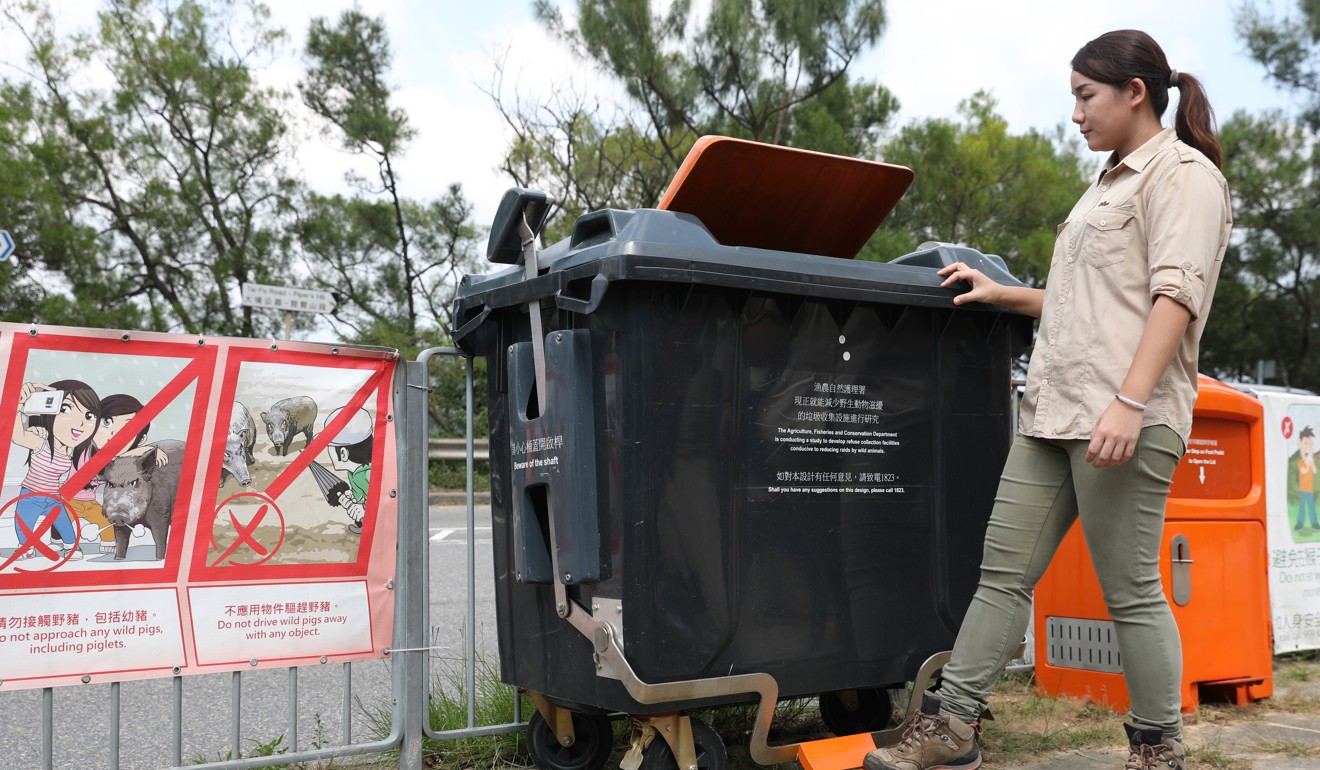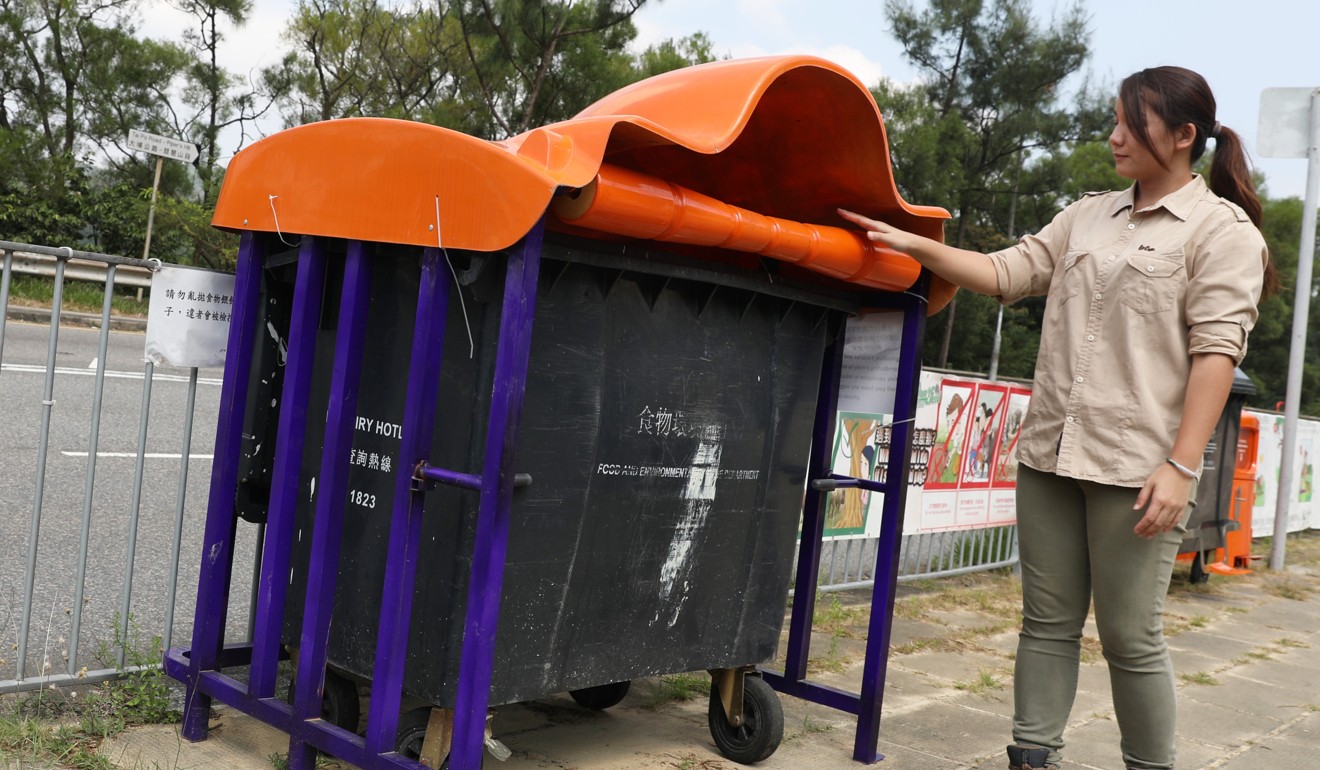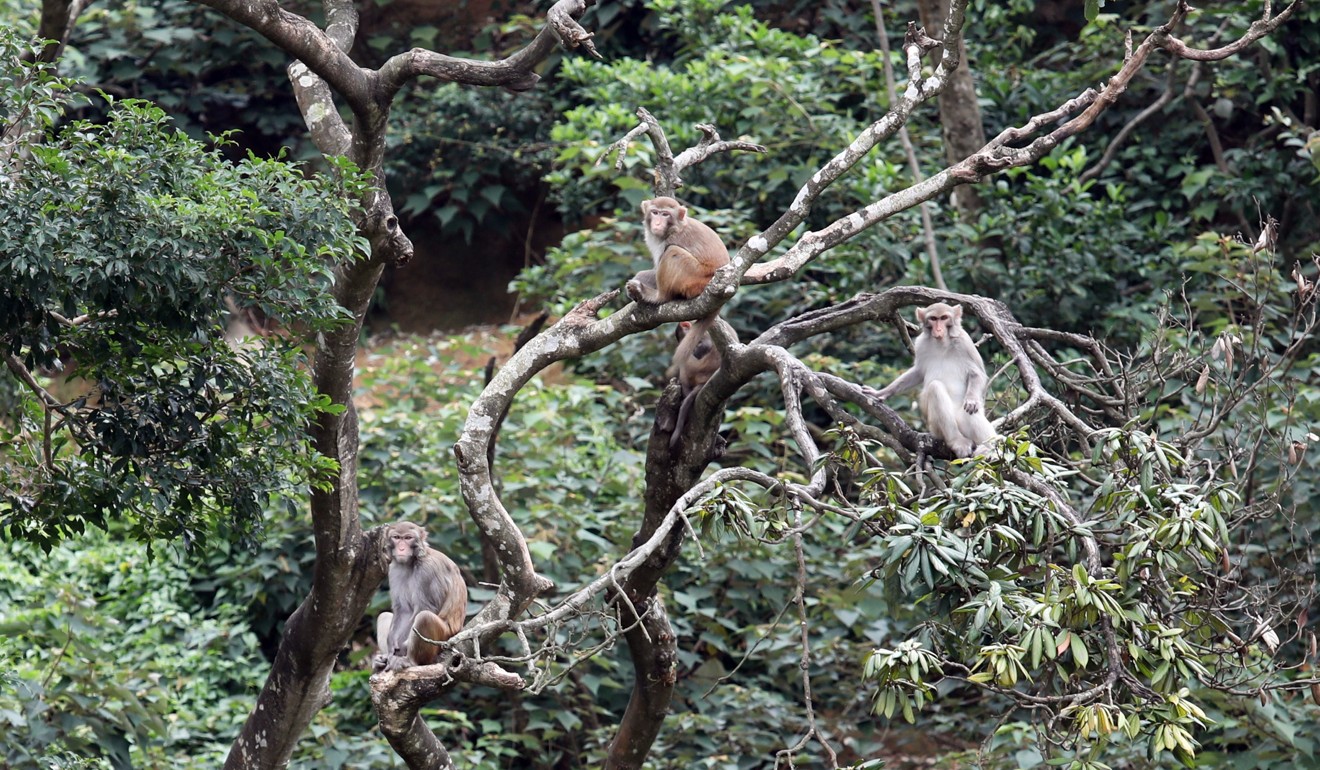
Hong Kong rolls out new trash cans to stop bin-raiding wild boars and monkeys on the city fringe
- A HK$1 million pilot programme includes three new bins designed to prevent the animals from tipping them over and opening their lids
- But some remain sceptical that they will effectively deter the wild animals

Newly designed rubbish bins will be rolled out across some of Hong Kong’s urban residential areas to stop raiding by wild boars and monkeys.
About 90 bins have been placed in 40 locations across eight districts by the Agriculture, Fisheries and Conservation Department (AFCD). The department has been working with Hong Kong Polytechnic University since 2017 on designs that prevent the wild animals from rummaging through garbage.
“The testing location is near urban fringe areas, because in recent years we found that more and more animals like to go to urban areas to scavenge for garbage scraps,” said Chan Po-lam, conservation officer at the AFCD.
The HK$1 million pilot programme will include three new bins designed to prevent wild boars from tipping them over by force, and to stop monkeys from opening their lids. Wheel locks and railings will help secure the bin to the ground.

In one design, a rolling bar, like those in playgrounds, has been added near the lid to stop animals climbing inside. In another, a foot pedal mechanism has been added so monkeys cannot easily remove lids.
“On one hand, the pedal design will prevent monkeys from raiding bins, but it is also more convenient for people to dispose of their waste,” Chan said, adding that garbage and waste plastics were not good for the animals’ health.
“People do not like to touch the bin lids with their bare hands because they think it’s dirty. So sometimes they may just leave garbage bags outside the bins.”
Residents who live near country park areas in Sha Tin, Tsuen Wan, Sai Kung and parts of Hong Kong Island have complained about animals ransacking bins.

The number of wild boars caught in Hong Kong reached a five-year high in 2018. According to the AFCD, there were 679 sightings or nuisance reports of wild boars between January and October 2018.
In June, a wild boar wandered into Kennedy Town MTR station and injured a woman. In March, a man was bitten by a wild boar in Aberdeen after he threw stones at the animal.
Hong Kong is home to about 1,800 wild monkeys, mainly found in country parks and along hiking trails around Sha Tin, Tai Po and Wong Tai Sin.
Charmaine Shih, a Mid-Levels resident, said there had been regular sightings of feral pigs in her neighbourhood in recent years.
“I don’t think wild boars have been knocking over bins as much, but people leave rubbish bags right next to the garbage bin behind our building,” said Shih. “I think the problem is also the poor management of garbage disposal.”

Paul Crow, senior conservation officer from the Kadoorie Farm and Botanic Garden, said the new bin designs were “a step in the right direction”, but their effectiveness at deterring wild animals was yet to be seen.
He also suggested the bins should be designed to blend in with the rural environment.
“The design may not be an effective deterrent to all potential bin-raiding species. Also, the colour scheme may clash somewhat with the rural environments that many of the bins are likely to be deployed within,” he said.
Chan from AFCD said the design would be improved after a review of the pilot programme.